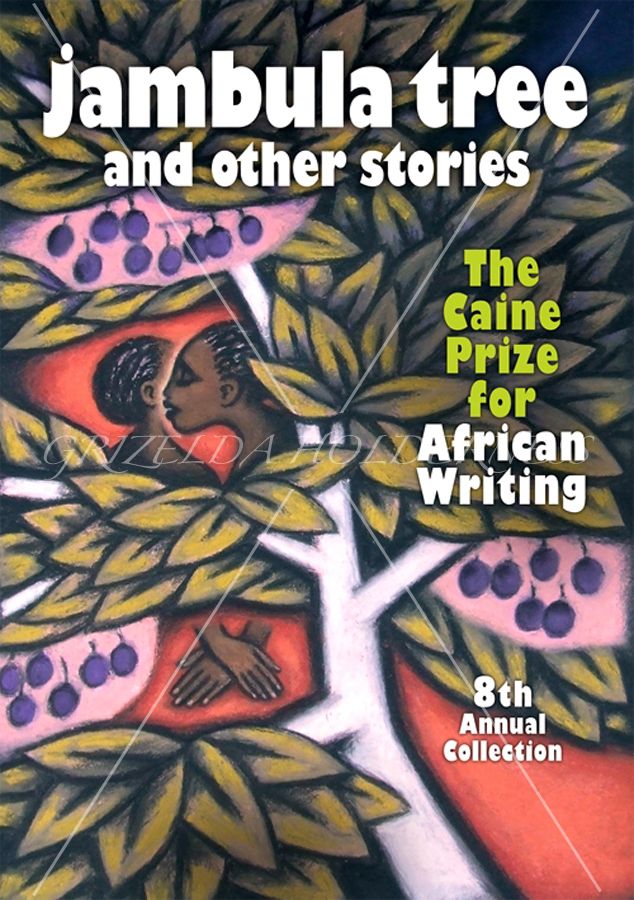
“Jambula Tree” is an award winning short story written by Ugandan writer Monica Arac de Nyeko. It won the 2007 Caine Prize for African Writing, the preeminent prize on the continent for short fiction. Arac de Nyeko is the first and thus far the only Ugandan to have won the coveted prize. Arac de Nyeko is also a member of FEMRITE, the Ugandan Women Writers’ Association.
“Jambula Tree” tells the story of two adolescent girls, Anyango and Sangu, who, for a time at least, `prefer’ one another. When their love is discovered, Anyango is sent abroad to boarding school, Sangu stays behind and becomes a nurse who leads a solitary life. The story is a letter written, perhaps delivered, perhaps never sent, by Sangu to Anyango on her return.
Their love is a jambula tree: “It had grown so tall. The tree had been there forever with its unreachable fruit. They said it was there even before the estate houses were constructed. In April the tree carried small purple jambula fruit which tasted both sweet and tang and turned our tongues purple. Every April morning when the fruit started to fall, the ground became a blanket of purple.”
The jambula tree is a real tree with real fruit and real cycles, and it is also the possible, the dream of shared love that extends in time to before the constructed spaces of human society and perhaps will continue beyond the lifetime of those spaces. It is part of the world, part of the earth, part of the sky, part of our story.
And yet …
“According to the framers of the Bill, a girl who prefers a girl is more dangerous to the society than officials who robbed millions of dollars meant to treat aids, malaria and tuberculosis patients in 2004,” wrote Joachim Buwembo in The East African, earlier this week.
Joachim Buwembo is a journalist of some renown, who has lived, worked and written in East Africa for decades. Currently a Knight International Journalism Fellow, working in Tanzania to improve coverage of poverty and development issues in that country, Buwembo has Managing Editor of The Monitor; founder of the Tanzanian newspaper, The Citizen; Kampala Bureau Chief for The East African; and editor of The Sunday Vision. Before that, he was a high school teacher in Uganda and Kenya. He has dedicated his life has to education through critical journalism and national debate. Joachim Buwembo is, by all accounts, a knowledgeable man, an experienced man.
Yet, with all that experience and knowledge, until recently Joachim Buwembo had had no opinion – good, bad or indifferent – about gay men, lesbians or homosexuality and had no reason to have an opinion. But times have changed: “Today, a Ugandan cannot run away from giving an opinion about homosexuality, after the national parliament was petitioned in a formal motion to prescribe draconian measures including the death penalty for the act.”
In this week’s op-ed piece, “Why we cannot turn a deaf ear to Uganda’s homosexuality Bill”, Buwembo uses reason to take apart the will to kill that underwrites the Bahati Bill. He has two main points. First, any addition to a penal code presumes a crime that can be judged, based on evidence and knowledge. In Uganda, very few can judge gay men, lesbians or homosexuality because very few actually have sufficient information, and even fewer know what the actual crime is. Second, there are real criminals and scoundrels about, men and women who have massacred and who have plundered. They go free.
That is Buwembo’s argument. Some see the argument as a bit of sanity and calm in a season of national gay panic and anti-gay hysteria. Others hear and read his as a `dispassionate voice…amidst all the nonsensical hype.”
But Buwembo is also a storyteller. He tells two stories. The first is the story of a dialogue: “In my many years of existence, I first recognised a homosexual only three years ago. I say ‘recognised’ and not ‘identified’ because I only have her claim as ‘proof’.” Where do nuanced differences between recognition and identification sit in the pogrom that is being planned for gay, lesbian, transgender, bisexual and intersex Ugandans, and for their friends and loved ones? Who will adjudicate identity? Who will send Joachim Buwembo to prison for not reporting on a woman who claimed a lesbian identity as her own?
The second is the story of two girls, the dangerous ones, the girl who prefers a girl, the girl who is preferred by a girl. I have been thinking of those two girls since I first read of the Bahati Bill and, even more, since I first read the Bill itself. For its target is the jambula tree, and all those who tell or read its stories.
The Bahati Bill violates human rights. At the same time, it attempts to silence the stories and murder the storytellers. Not the gay, nor the lesbian, nor the straight, not the this nor the that storyteller, but all storytellers. It means to stifle and kill creativity and creation itself. Who will send Joachim Buwembo and Monica Arac de Nyeko to prison, or to the gallows, for having written human stories of human spirit, love, and being? Would we not rather taste of the purple fruit of the earth than swim, and drown, in the red blood of our sisters and brothers?
(Photo Credit: http://www.grizeldaholderness.co.uk)